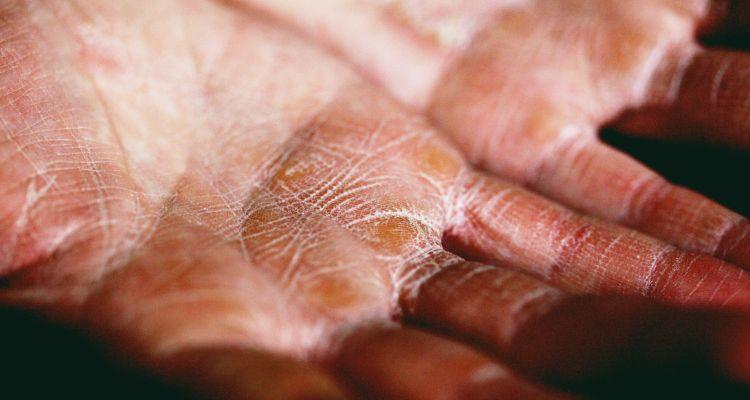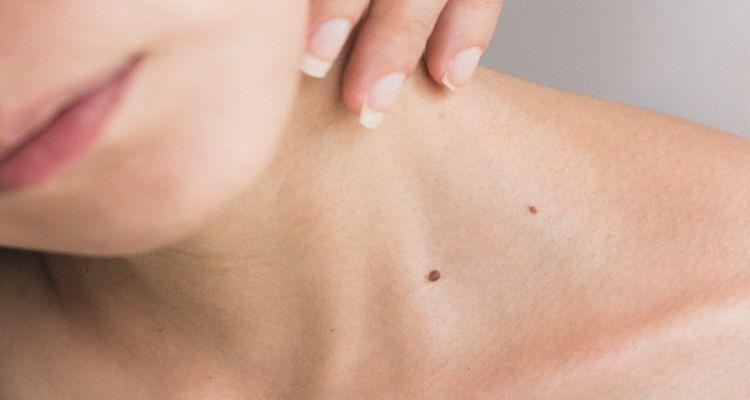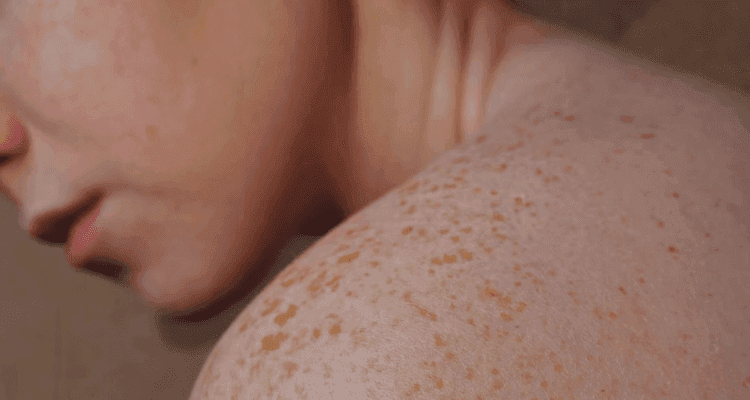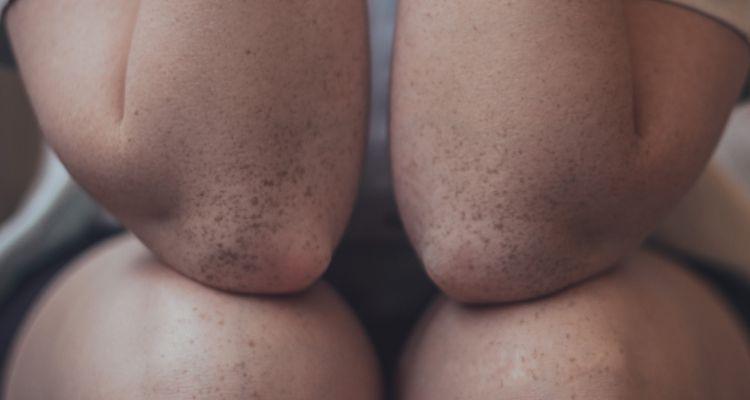
Chickenpox - symptoms, vaccination, infection and treatment | Hamelis
Updated on 02. November 2023
Chickenpox (varicella) is a typical childhood disease that usually occurs between the ages of two and ten. The viral infection can also affect adolescents and adults. The main sign is a skin rash.
Chickenpox Brief overview:
- Causes: Infection with the varicella zoster virus
- Symptoms: Fever and itchy rash
- Prevention: Vaccination
- Treatment: Use of gels, creams or powders
What is the cause of chickenpox?
Chickenpox is caused by an infection with the varicella zoster virus. It belongs to the group of herpes viruses. Occurrences of the disease are known worldwide.
What is the course of infection with chickenpox?
Chickenpox is transmitted between people through a so-called droplet infection. The viruses are spread through the air when people breathe or cough on each other and when they have close physical contact with people who are ill. Chickenpox is highly contagious.
What is the incubation period for chickenpox?
The incubation period for chickenpox from infection to outbreak of the disease is on average two weeks. In individual cases, the duration varies from eight days to four weeks. Chickenpox is already contagious one to two days before the outbreak of the pustules.
Why does an infection with chickenpox often lead to shingles?
After the disease has subsided, the viruses lie dormant in people's bodies for life. If the body's defences are weakened, these viruses can become active again. After years, the chickenpox viruses can then cause shingles. This is often caused by a weakening of the immune system due to menopause, stress or psychological strain. About 20% of people who have been infected with chickenpox also get shingles.
What are the symptoms of chickenpox?
The symptoms of chickenpox differ between children and adults mostly in the severity of the disease.
What are the symptoms of chickenpox in children?
In the early stages of chickenpox, symptoms usually include a general feeling of malaise. Other symptoms are:
- headache and aching limbs
- dull and weepy constitution
- Rise in body temperature to 38-39°C
- Small reddish poplars on the face
- Itchy blisters form from the poplars in a short time
- Swelling of the lymph nodes
The itchy [rash\]\(/skin rash/) is a particular problem for children. Otherwise, the disease heals completely without complications in young patients. The symptoms for chickenpox in adults are similar to those in children. However, the course of the disease is usually longer and more severe.
- Fever of up to 40 °C
- Increased number of blisters
- Delayed healing of smallpox up to 4 weeks
- Increased risk of side effects
What side effects can occur from chickenpox?
Due to the diverse and risky side effects, infections with chickenpox are in particular focus. Additional infections and inflammation of various nerve areas occur particularly frequently.
- Bacterial infection due to inflammation of the vesicles as the most frequent complication.
- Viral pneumonia as a frequent and serious complication
- Painful stiffness of the neck (meningeal syndrome)
- Disturbances in the coordination of movement in the form of balance disorders
- In rare cases: Meningitis, cerebral inflammation, spinal cord and liver dysfunction
- In pregnancy possibly malformations of the foetus
What does chickenpox look like?
The characteristic chickenpox develops from small pustules. The lentil-sized blisters develop from these. They are clearly distinguishable from mosquito bites or pimples, as chickenpox is filled with a clear fluid. Another feature is a red vestibule around the blisters. Smallpox starts on the face and spreads from there over the entire body. As the disease progresses, the fluid becomes cloudy. After 3 to 5 days, the blisters dry up, and all stages of smallpox can occur at the same time.
How is chickenpox diagnosed?
The diagnosis of chickenpox is very easy and clear on the basis of the blisters with fluid. Laboratory findings can also confirm this. A laboratory test is particularly helpful in cases of asymptotic disease with few vesicles.
Do I need to see a doctor if I have chickenpox?
A visit to the doctor is especially necessary if the diagnosis is uncertain due to a few blisters. Medical treatment should also be sought if the [itching\]\(/pruritus/) is severe. Due to the high risk of contracting chickenpox, a visit to the doctor is strongly recommended for pregnant women and babies under 6 months of age. This also applies if children or adults get a stiff neck from chickenpox. Then it could be a serious complication.
What are the risk groups for chickenpox?
Chickenpox is highly infectious. Therefore, all people in the vicinity can become infected with chickenpox. Risk groups are above all newborns, people with weakened immune defences and people undergoing immunosuppressive therapy. If these groups of people become infected, a doctor should always be consulted.
What do I need to be aware of with chickenpox during pregnancy?
An infection with chickenpox in pregnant women in the first two trimesters can lead to a malformation of the foetus. Therefore, a doctor should always be consulted in the event of an illness. If a pregnant woman contracts chickenpox shortly before giving birth, the newborn baby can also become infected. This involves several risks for the health of the baby.
What are the risks of chickenpox in babies?
An infection with chickenpox in babies under 6 months of age can take a severe course. There is no protection against the infection in the infant. As a side effect, inflammation of the blood vessels occurs in some cases, leading to the leakage of blood cells. This complication can be fatal in babies.
What is the treatment for chickenpox?
Chickenpox is caused by herpes viruses. No targeted therapy has yet been found against this type of virus. The use of antibiotics is not indicated. Nevertheless, there are many ways to alleviate the symptoms of the disease, such as the severe [itching]().
What helps against itching in chickenpox?
The itching in chickenpox is very strong. If the patient scratches the blisters, [scars\]\(/scar/) can form on these areas. At the same time, the fluid that comes out of the blisters is highly infectious. Various measures can be taken against the itching or the scarring:
- The use of gels, creams or powders with active ingredients of zinc, tannins, menthol or polidocanol is a good option. The tannins help against the itching and, together with zinc, serve the healing. Cooling menthol supports the effect.
- If the itching is severe, antihistamines can also be prescribed by the attending doctor.
- Short-cut and smoothly filed fingernails leave few traces when scratched and blisters remain closed. This prevents scarring.
What home remedies support the treatment of chickenpox?
There are several home remedies that contain high levels of tannins. These include green and black tea, witch hazel and camomile. Prepared correctly, these home remedies are very good against itching from chickenpox. When buying or preparing them, a few points should be taken into account.
- Black or green tea should steep for at least ten minutes to achieve a high content of tannins.
- Only witch hazel from bark extract should be used. This contains the highest proportion of tannins. In contrast, there are no tannins in witch hazel water, but essential oils.
- With camomile tea, squeezing the tea bag is useful to enrich the tea with bitter substances.
Witch hazel not only reduces itching, it is also anti-inflammatory, astringent and antiviral. Witch hazel compresses are particularly suitable. These can be cooled in the refrigerator before treatment, which increases the effect against itching. Similar success against itching can be achieved with green or black tea. In addition, the use of a shaking solution of witch hazel, chamomile tea and zinc oxide is recommended. This dries up the blisters and the skin heals faster. This can prevent an infection.
How long does a case of chickenpox last?
Chickenpox in children lasts up to two weeks. The risk of infection ends when all the blisters have crusted over. This is achieved on average six days after the onset of the pustules. Adults must expect the disease to last longer.
What does vaccination do for chickenpox?
Due to the many and severe risks, vaccination was introduced for chickenpox. Today, this is recommended by the Stiko for children from 11 months of age.
Which vaccine is given for chickenpox?
The vaccine for chickenpox consists of the varicella zoster viruses that cause the disease. However, the viruses are so strongly weakened that no infection can occur through them.
Can I be infected with chickenpox despite vaccination?
If the vaccination is carried out twice, it offers a comprehensive protection of 95 percent. An infection despite vaccination is accordingly rare. If a person has nevertheless become infected, the course of chickenpox is much easier. The risk of side effects is also significantly lower, even in adults.
Is vaccination against chickenpox possible as an adult?
The vaccination can be made up as an adult. The same vaccine is administered in a different dosage. Vaccination is advisable for those who wish to have children, if there is no immunity to chickenpox yet.

Hameli's vision
Go to Vision
Vaginal Fungus - Symptoms, Causes & Treatment
Go to Vaginal mycosis
Dry skin - What helps against it?
Go to Dry skin
Witch hazel - varieties, cutting, effect, & products
Go to Witch Hazel
Recognise and treat coccygeal fistula
Go to Coccygeal fistula
Anal fistula - symptoms, causes & treatment
Go to Anal fistula
Labial tear - Symptoms, Causes & Treatment
Go to Labial tear
Intertrigo - Cause, symptoms and treatment of the skin wolf
Go to Intertrigo
Anal abscess: symptoms, recognition, causes & treatment
Go to Anal abscess
Seborrhoeic Eczema - Symptoms, Causes & Treatment
Go to Seborrhoeic eczema
Anal fissure - Symptoms. Causes & home remedies
Go to Anal fissure
Vaginal dryness - symptoms, causes & treatment
Go to Vaginal dryness
Hives - Cause, symptoms and treatment
Go to Hives
Hamelis experts
Go to Experts
Rose lichen - symptoms, causes and treatment
Go to Rose lichen
Scars - treatment and removal
Go to Scar
Ringworm: Symptoms, Causes & Treatment
Go to Ringworm
Scabies - symptoms, cause and treatment
Go to Scabies
Treat anal eczema sustainably
Go to Anal eczema
Eczema - symptoms, causes and treatment
Go to Eczema
Contact allergy - symptoms and treatment
Go to Contact allergy
Treat stubborn nail fungus
Go to Nail fungus
Crabs - Intimate area, symptoms & treatment
Go to Crabs
Pruritus - Causes, symptoms and treatment
Go to Pruritus
Rosacea on the face - symptoms, causes and treatment
Go to Rosacea
Perioral dermatitis - symptoms, treatment & home remedies
Go to Perioral dermatitis
Skin fungus - cause, symptoms and treatment
Go to Skin fungus
Perineal tear - origin, degrees & causes
Go to Perineal laceration
Anal prolapse: symptoms, causes, treatment
Go to Anal prolapse
Skin rash - causes and treatment
Go to Skin rash
Genital herpes - woman, man & symptoms
Go to Genital herpes
Atopic dermatitis in children, adults and pets
Go to Atopic dermatitis
Angioedema - symptoms, causes and therapy
Go to Angioedema
Nappy dermatitis - cause and treatment of sore baby bottom
Go to Diaper rash
Sunburn - symptoms, duration & what helps?
Go to Sunburn
